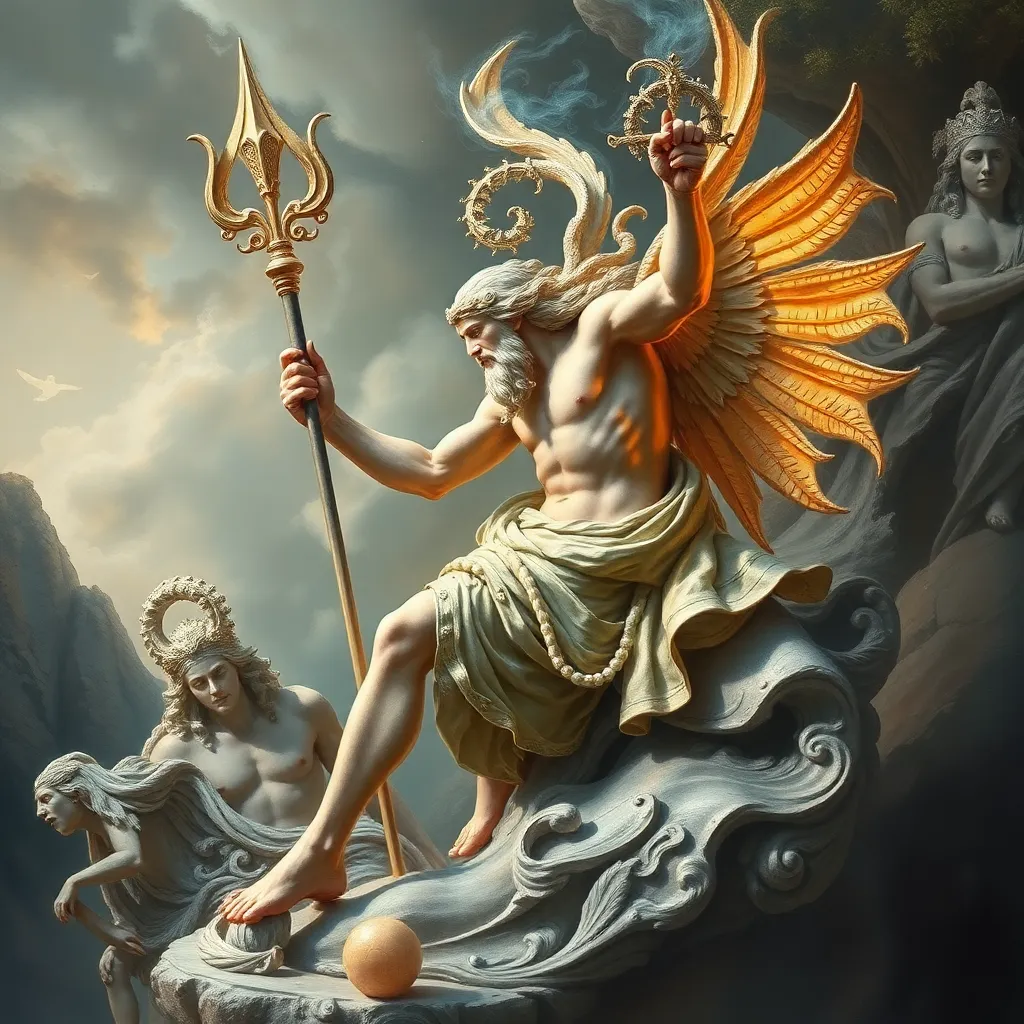Perseus and the Theme of Transformation in Greek Myths
I. Introduction
Greek mythology is a rich tapestry of stories that explore the complexities of human nature, the divine, and the transformations that occur throughout life. Among the pantheon of mythological figures, Perseus stands out as a key hero whose narrative is deeply intertwined with the theme of transformation. From his miraculous birth to his heroic deeds, the transformations experienced by Perseus reflect broader themes in Greek mythology, where change often signifies growth, identity, and fate.
This article will explore how the theme of transformation is embodied in Perseus’s journey and its broader implications in Greek mythology, highlighting the significance of divine intervention, fate, and personal agency.
II. The Birth and Origins of Perseus
Perseus’s story begins with a dramatic prophecy: Acrisius, the king of Argos, learns from an oracle that he will be killed by his daughter Danaë’s son. In a desperate attempt to avoid this fate, Acrisius imprisons Danaë in a bronze chamber. However, Zeus, captivated by her beauty, transforms himself into a golden shower and visits her, resulting in the miraculous birth of Perseus.
This transformation of Danaë, from a confined princess to the mother of a hero, showcases the impact of divine intervention on identity. Perseus’s origin story is not just about his birth, but also about the changes that occur in those around him, setting the stage for his own transformations throughout his life.
III. Perseus’s Quest and the Role of Fate
Perseus’s quest to slay Medusa, the Gorgon, is a defining moment in his transformation from a boy into a hero. Tasked with this seemingly impossible challenge by King Polydectes, Perseus embarks on a journey that tests his mettle and courage. In Greek mythology, the concept of fate is paramount; it is often depicted as an inescapable force that shapes the destinies of mortals and gods alike.
Throughout his quest, we see how fate drives the transformation of Perseus’s character:
- He evolves from a passive figure into an active agent of change.
- His encounters with divine beings and monsters challenge and reshape his identity.
- Ultimately, he learns to navigate the complexities of fate, embracing his role as a hero.
IV. The Symbolism of Medusa and Transformation
Medusa herself embodies the theme of transformation. Once a beautiful maiden, she is cursed by Athena and transformed into a monstrous figure with snakes for hair, representing fear and power. Medusa’s transformation is both literal and metaphorical, reflecting themes of victimization and the destructive nature of jealousy.
Perseus’s encounter with Medusa serves as a catalyst for his own personal growth:
- He learns to confront fear head-on, using his gifts wisely.
- His victory over Medusa symbolizes the triumph of light over darkness.
- By defeating her, he not only transforms his own destiny but also liberates others from her petrifying gaze.
V. The Use of Gifts and Tools: A Transformation in Agency
Throughout his journey, Perseus is aided by various divine gifts, including a reflective shield from Athena, a sword from Hermes, and winged sandals that allow him to fly. These gifts are not merely tools; they symbolize the transformation of Perseus’s power and agency.
The interplay between divine assistance and personal growth is evident:
- Perseus learns to use the gifts to achieve his goals, showcasing his evolving capabilities.
- Each divine item enhances his heroism, highlighting the collaborative nature of his transformation.
- His success illustrates the balance between fate and free will in shaping one’s identity.
VI. The Aftermath of the Quest: Transformation of Identity
Upon returning from his quest, Perseus experiences profound changes in his identity. He is no longer the frightened youth but a celebrated hero. His actions have consequences that ripple through his life and the lives of those around him.
The transformation of Perseus’s identity from hero to king is significant:
- He marries Andromeda, further solidifying his status.
- As a ruler, he must navigate the complexities of leadership, influenced by his heroic past.
- His experiences shape his character, instilling wisdom and responsibility.
VII. Broader Implications of Transformation in Greek Myths
The theme of transformation is prevalent in many Greek myths, where characters often undergo significant changes that reflect their inner journeys. Perseus’s story exemplifies common themes in mythology, such as:
- The struggle against fate and the quest for personal identity.
- The relationship between mortals and the divine, highlighting the transformative power of the gods.
- The connection between transformation and heroism, where trials lead to growth and legacy.
Through these narratives, Greek mythology illustrates that transformation is a fundamental aspect of the human experience, resonating with audiences across generations.
VIII. Conclusion
In conclusion, the journey of Perseus is a profound exploration of transformation within Greek mythology. His story encapsulates key themes of identity, fate, and divine intervention, illustrating how these elements intertwine to shape the hero’s journey.
Reflecting on the significance of transformation, both in personal and mythological contexts, we see how Perseus’s legacy endures, inspiring modern interpretations of heroism and change. His narrative serves as a reminder that transformation is not just about physical changes, but also about the growth and evolution of character, making Perseus a timeless figure in the landscape of mythology.




